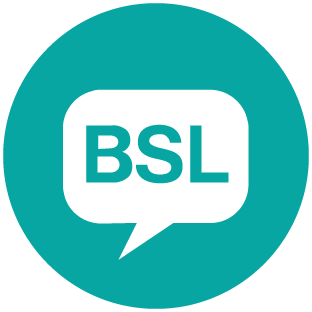DWP services more accessible thanks to new British Sign Language pilot
- Minister for Disabled People Justin Tomlinson hails ‘significant step’
- Deaf charities voice support for move
- Accessibility a Government priority for 2016
A ground breaking new system to ensure British Sign Language (BSL) users can easily access Government services is now in operation at the Department for Work and Pensions (DWP).
The Video Relay Service (VRS) allows users to make BSL interpreted video calls via their tablet, smartphone, computer or laptop. A professional interpreter then relays the call in English to the member of DWP staff.
Minister for Disabled People Justin Tomlinson said: “I am absolutely committed to ensuring equal accessibility for disabled people – whether that be access to employment, leisure facilities, or public services.
“Historically, disabled people may have faced barriers, but it is one of my top priorities to break every one of these down.
“The introduction of the Video Relay Service is an important step in making Government services accessible to deaf people or those with hearing loss, and will ensure they can communicate with our staff quickly and easily. It will make a huge difference to their experience of using our services and I’m delighted we’re leading the way across Government.”
Jim Edwards, chair of the UK Council on Deafness, said: “The UK Council on Deafness is delighted DWP has taken this step to open up access for Deaf people who use BSL. We trust the pilot will be successful and look forward to more Government services becoming accessible.”
Damian Barry, Director of Community Development at the British Deaf Association, said: “We are pleased that the DWP has acknowledged the importance of Deaf customers having full access to its services in BSL. The setting up of a pilot project is an encouraging step towards our wish to see full VRS access for deaf people across all Government departments.”
The introduction of VRS is the latest demonstration of the Department’s commitment to making services accessible for people regardless of their disability. The Minister for Disabled People has made accessibility across all sectors of the UK a priority for 2016, aiming to build on successes such as football’s Premier League agreeing to make significant improvements to their grounds by August 2017.
The Minister said: “My role is to work across Government and with different industries to remove the barriers that disabled people face. We made some real progress in 2015 but I want to see much more this year. Businesses need to recognise that if they do not make the changes needed they could be missing out on very talented employees, not to mention millions of the so called ‘purple pound’.”
Notes to editors
- To deliver the VRS the Department has signed a contract with industry specialists SignVideo, a Social Enterprise with extensive experience of delivering VRS for companies such as Barclays and Halifax Banks and Allianz Insurance
- Customers will access VRS from hyperlinks on the relevant information pages on GOV.UK. This hyperlink acts as the “call” button for BSL users and carries a unique identifier which shows the provider where in DWP the call is for. This enables the provider to make contact with the relevant area.
- The DWP staff member will deal with the call as they would for any other call and ask a few identity verification questions through the interpreter before continuing.
- There is no registration required and for the service and it will be instantly available. There is no need to schedule an appointment.
- A video guide is available here.
- The contract is limited to 6 months as Crown Commercial Services (CCS) are in the final stages of tendering for a new National Framework for Interpreting service, which will be announced in March 2016, after which the Department(s) will have to retender their services to those companies on the framework. The previous National Framework did not include the provision for VRS.
- DWP customers who have a specific communication barrier are able to use a variety of communication methods including home visits, phone calls and online services as well as written communications.
- Where necessary the Department provides British Sign Language (BSL) interpreters or non-spoken language interpreters, using contracted providers for customers who are deaf, hard of hearing or speech impaired. We also use induction loops, email, lip reading, and textphones.

